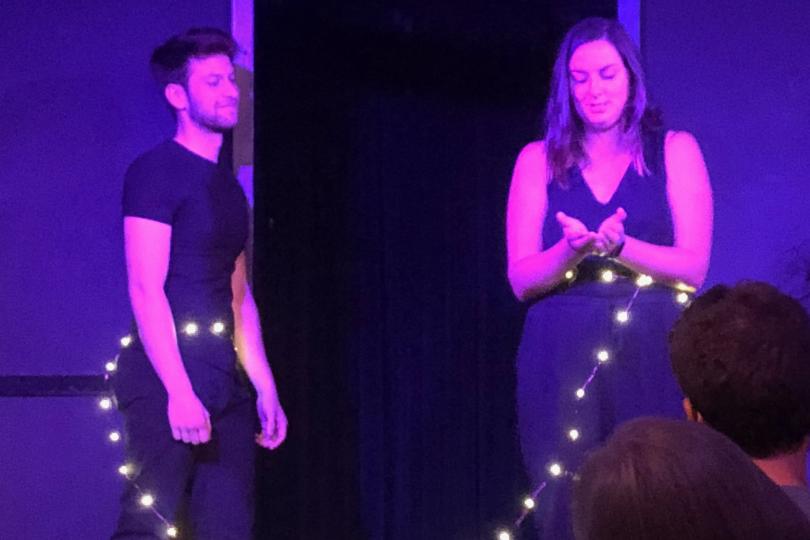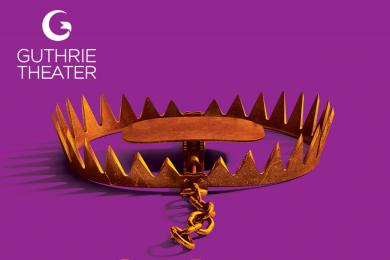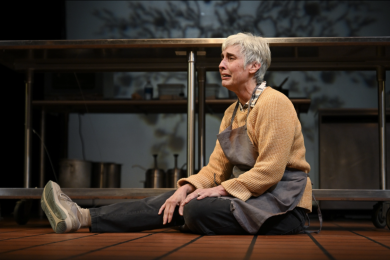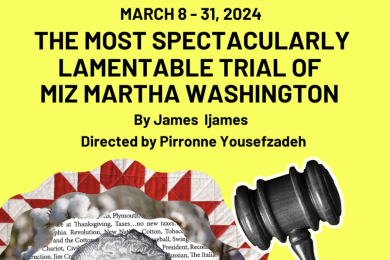HUGE thoughts about improv

There is a dearth of improv reviews in the Twin Cities. As someone who has been a part of the Twin Cities improv community since the summer of 2015, this has been a reoccurring issue that has come up in conversation. This is not solely on the responsibility of reviewers however; there have been efforts to remind performers and producers that they must promote their work. Through press releases, poster displays, and the good old-fashioned approach of working your way through connections, one can find their way on a reviewer’s radar. As artists we must remember that there is a lot of art in this town and limited people whose sole job is to discuss it. There are also people who have full-time jobs AND decide to go out and review shows and that should be celebrated.
However…
There is little excuse to why as a whole, the reviewing community has avoided improv. I have heard some excuses of “lack of familiarity” to which I answer, “Get familiar with it – go to the shows and learn if that is your barrier.”
I can guarantee that six nights of the week there is an improv show playing within the Twin Cities and there are a variety of improv shows that happen every weekend – and yes, at more places than HUGE Theater and The Brave New Workshop - both places I work. Essentially, what I am saying is that we as the Twin Cities, whether we are improv artists, audiences, or reviewers, can and should do better to nurture the improv community that we have because spoiler – it is freaking amazing.
On August 22, I did find myself at HUGE Theater in a way I haven’t been before, as a reviewer. Now, HUGE was one of the first places I found community when moving here, taking a summer intensive taught by Jill Bernard and John Gebretatose. From there, I took the level classes, workshops, performed, TA’ed, taught, and now I find myself as an occasional producer and director of shows hosted by the theater.
This to one extent brings a level of bias that I am willing to call out, but for me, it comes in the flavor of tough love. I have seen and created amazing work on those stages and have strong feelings about the caliber of work that can be showcased. There is an application process for the HUGE Wednesday series, where you perform weekly for two months, in which you must demonstrate a level of commitment and experience to land a slot. It has also been expressed to me that this is a testing ground for potential weekend shows at the theater. Having this information in mind and wearing my new-ish hat as a reviewer, I was greeted to the first of five shows for the evening:
Rat Queen
Two thirds of the base group of Rat Queen were joined by two additional players to perform their form, Call Center, which as it was played, was a series of interconnected scenes couched between two different calls to a call center to deal with an issue with a product. From the beginning of the set where a phone was answered, but the sound cue for the phone continued, we were greeted to the wonderful nature of improv where there are no mistakes unless you decide it is a mistake. This group benefited from bold choices made by players. We as an audience were rewarded when players really absorbed the information and responded with that in mind, and there were high hilarity moments, like when a character made an improv reference. Improv is not so lofty as to not be able to laugh at itself. There was some content weirdness throughout the set however – a tactful feminist call out of the existence of female superheroes by a player was shortly followed by an odd dig at a character not being able to accomplish something because of their lack of school education by that same player. I must give kudos to a player in the group for portraying a character with a religious background who was not chastised or made fun of because of her religion. Often times in improv and in theater in my experience, religion becomes all a character is or everything is shaped around their belief; this was not the case and the multifaceted experiences of this character made it one I enjoyed seeing over and over again.
Rat Queen was followed by a duo by the name of:
Community Ed
Community Ed is Pat Schmidt and Amy Stedman. They describe their format as “playing two characters that are always learning something new about themselves and one another.” We were immediately greeted by the characters that they would play throughout their set and were informed they were best friends, which is always refreshing in comedy. So often, we see the idea that “conflict = comedy,” and that can easily lead to a lot of arguments, pending divorces, and self-deprecation. It excited me that we would be treated to people who considered each other best friends and all the nuances that go with that, especially since they decided to set their scene at the State Fair, navigating the world of dating that is relatively new for both characters.
They dove into discussion topics and radical honesty that is usually reserved for close friendships. A memorable exchange went: “Is truth mean?” “Let’s try it and see.” It was unfortunate that for the depth that was promised didn’t pan out for the set.
There was a point where the relationship did take a turn into a creepy and stalker/stalked dynamic between the two characters as we learned more about their relationship. This was handled lightly and often passed over, which was unexpected between these so-called “best friend” characters. Maybe this is the dynamic of some best friend relationships; to not go deep and keep conversation focused on a set list of topics. But having one character express shock and discomfort to the stalker nature of her friend made me uncomfortable. Watching these best friends learn that they may not know each other as well as they think they do was fun then stressful. As some point, I remember thinking that these characters probably shouldn’t be friends, but maybe that was the goal of this tricky dynamic. I do wish that there was some discussion into this bad behavior that has clearly affected the other one. These characters also spent a large portion of their time seated in a set location, which drew focus to the language of the scene, and while they never got to the core of any issue, they spun out in a variety of different directions and were never at a loss for topics to discuss, often times referring back to previous points of discussion. It is clear that these two improvisers are sharp and witty, which is what made me want more for their character’s relationship.
After Community Ed, I was expecting an intermission but was instead greeted to out of town special guests:
BOUND
Jess Kelley-Madera and Adrian Burke are the co-creators of the original improv form, Bound. As they describe it, Bound is a relationship-focused form that takes place in the dark. Rather than using traditional stage lighting, they use a string of lights to inform and inspire their scene work as they explore a single relationship over a lifetime. Now, I am a sucker for interesting stage pictures and this form was all about that. Being literally connected by this string of lights, they symbolically showed how the two characters they portrayed where bound to be with each other.
They started their set with a relaxed feeling, gaining a series of suggestions from the audience that would be then later recapped before entering their set, fully utilizing the suggestions as key moments in the character’s relationships. The way that they approached the relationship at its different points in a non-linear fashion showed not only a level of intimacy between the characters, but between the improvisers. The high level of comfort and trust with each other gave a lot of honesty and charm throughout the set. As cheesy as it sounds, it reminded me of those close relationships in my life, where you can let your hair down, share truthfully, and have someone genuinely care about you. I do hope Bound finds itself back to the Twin Cities to share its charisma with our community again – and soon.
Bound introduced the intermission, to which afterwards we were given the force that is:
Free Association
Free Association is a rotating cast helmed by MJ Marsh, who told me that he wanted to play with the idea of a “tag-in” as opposed to a “tag-out”. Throughout the set, a collection of eight improvisers played various characters in a scene, with anyone having a chance to play any established characters. There is a joy watching two or three or eight different interpretations of the same character that allows each improviser to not only honor what that character is but add and expand on the character’s dynamics and characteristics. This form was dynamite in stage form, and there were many times where the improvisers were inaudible due to the sheer wall of laughter that they were earning. They continually push what could happen with their form and I almost lost it completely when one performer tagged in to take over as the beep sound for the sonar in a submarine. They were a prime example that anything can happen if you allow it to in improv when you support each other and want everyone to win. Free Association and the audience won from their set.
This lead into the final set of the night:
Drum Machine
Drum Machine is Jill Bernard's one-person unscripted musical featuring multiple characters in scenes, monologues and songs accompanied by a drum machine or in collaboration with a musician whenever possible. This night’s collaborator was John Hilsen, who is known for his work scoring scripted shows, improv shows, and a budding and impressive solo career.
The show opened by Jill interviewing a member of the audience, and weaving details of their life into a historical period suggested by the audience. Now, Jill Bernard and Drum Machine are internationally recognized in the improv and performance communities as a tour-de-force. Whenever I have travelled for improv festivals, the way people have heard of the Twin Cities is mainly due to Bernard and her show. There is a reason for that. Drum Machine encapsulated many, if not all, of the qualities that make improv magical and captivating: the level of trust she has in the musicians she plays with, her ability to keep audiences engaged, and her skill to portray many characters with heart, energy, and brilliance. It is clear that she is at the top of the improv game.
There was staging and song-splitting that she did in one song that was more interesting than many musicals are in their entirety. Her characters were so distinct that whenever we revisited them, they were as alive and intriguing as when we first met them. She gave us character monologues, a variety of relationships, and even some wonderful fourth wall breaks that were handled in a way that showed that she cared about her audience and cared for her craft. It is in my opinion that anyone who is interested in theater should meet Jill Bernard and if you ever have the opportunity to take a class from her, do so. If you believe my opinion is too clouded by my past experiences with her, google her name, and see that these sentiments are shared by many, many people.
It is also important to mention that there was an amazing tech operator during all five shows who mixed lights and sound effects on the fly. This craft can really elevate a show and Dan Ruby who was helming the booth this evening deserves major recognition for balancing five very different sets and creating an environment that was unique and complementary for each.
There are a multitude of improv groups of all levels that exist within our performing community, and as we make a push for audience development and new work, we would be wrong to leave the improv community out of the conversation. So, go see the budding theater company, go see the dope show that Mixed Blood is doing, and also go see an improv show. Contrary to popular belief, we can have it all in this community.


